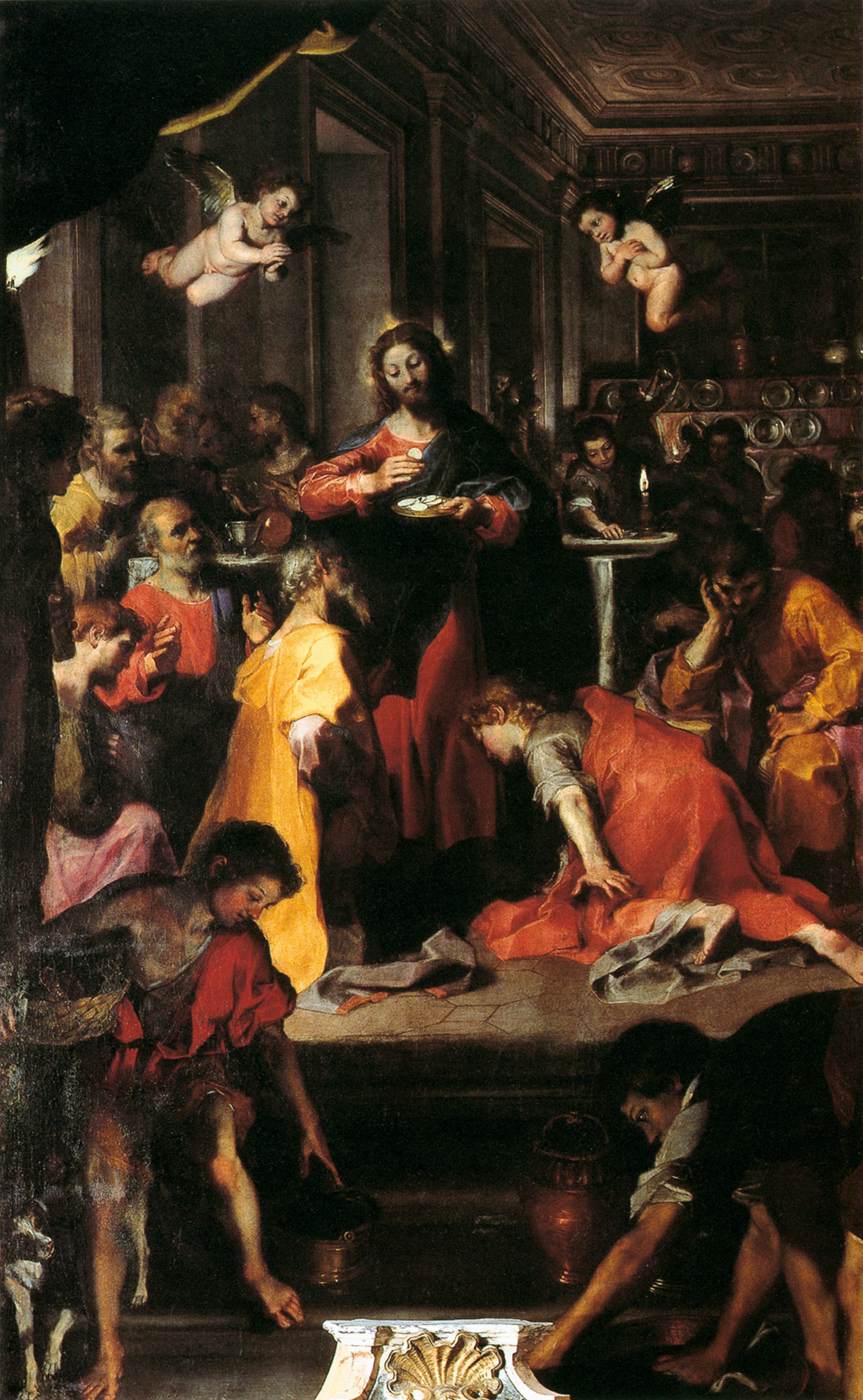Description
The painting "The Institution of the Eucharist" by artist Federico Fiori Barocci is a masterpiece of the Italian Renaissance that is in the collection of the National Gallery of Art in Washington DC. This impressive 290 x 177 cm work represents the last supper of Jesus with his disciples and is one of the artist's most important works.
Barocci's artistic style is renowned for his ability to create realistic and detailed figures with a soft and delicate brushwork technique. In this work, the artist manages to capture the emotion and drama of the last supper with a composition that presents the disciples in different poses and facial expressions.
Color also plays an important role in this work, with a rich and vibrant palette that includes shades of gold, blue, and red. The use of light and shadow is also notable, with soft lighting highlighting the figure of Jesus at the center of the composition.
The story behind the painting is fascinating, as it is believed to have been commissioned by Pope Clement VIII in the 16th century to be placed in the Chapel of the Eucharist in the Basilica of Saint Francis in Assisi. However, the work was never delivered and was instead acquired by Cardinal Francesco Maria Del Monte, who kept it in his private collection.
Little-known aspects of the work include details such as the presence of a cat in the composition, which is believed to represent evil and temptation, and the inclusion of an image of the Virgin Mary in the background of the scene, symbolizing the connection between the last supper and the crucifixion of Jesus.
In conclusion, "The Institution of the Eucharist" by Federico Fiori Barocci is an impressive work of art that combines exquisite technique with emotional composition and rich symbology. It is a key piece of the Italian Renaissance and a jewel in the collection of the National Gallery of Art in Washington DC.

